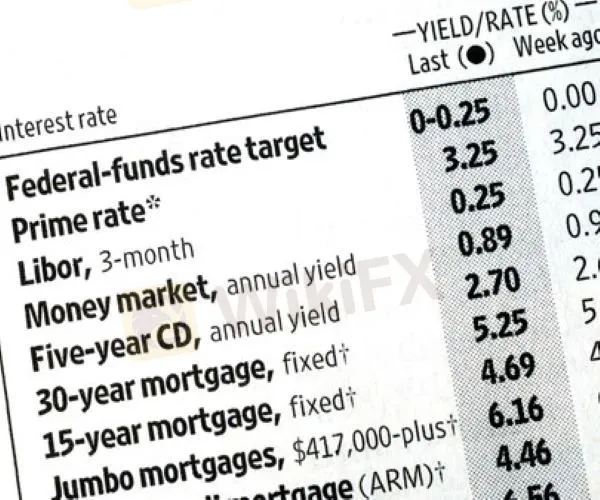简体中文
繁體中文
English
Pусский
日本語
ภาษาไทย
Tiếng Việt
Bahasa Indonesia
Español
हिन्दी
Filippiiniläinen
Français
Deutsch
Português
Türkçe
한국어
العربية
Fed's Daly: Pace of Policy Tightening Depends on Data
Abstract:The timing and magnitude of future funds rate and balance sheet adjustments will depend on how the economy and the data evolve.

With the U.S. economy and the labor market doing well but inflation too high, it is “appropriate” for the Federal Reserve to begin reducing policy accommodation next month, San Francisco Federal Reserve Bank President Mary Daly said Wednesday.
After that first rate rise, Daly said in remarks prepared for delivery to the Los Angeles World Affairs Council & Town Hall, “the timing and magnitude of future funds rate and balance sheet adjustments will depend on how the economy and the data evolve.”
Among data she'll be watching, she said, is the transition from pandemic COVID-19 to an endemic state; how quickly disrupted supply chains recover; how rapidly workers sidelined by COVID-19 return to the workforce; and how quickly the fiscal support that bolstered the economy's recovery from the pandemic shutdowns fades.
“We will closely watch all of these developments and let the data determine the appropriate path of policy,” Daly said.
Inflation by the Fed's preferred gauge, the personal consumption expenditures (PCE) price index, rose 5.75% last year, the highest in about 40 years and more than twice the Fed's 2% goal.
As the Fed prepares for what's widely expected to be a series of rate hikes and a sharp reduction in the Fed's balance sheet to quell that inflation trend, Daly's remarks stand out as less hawkish than some of her colleagues.
Her remarks Wednesday provided one key as to why: her confidence that the Fed's ability to communicate its inflation-fighting intentions and thus shape inflation expectations will keep an upward price spiral from taking hold as it did in the 1970s.
Greater transparency and a strong commitment to achieving our goals assures Americans that periods of high inflation or unemployment will not last forever; that there is an end in sight.
For more Forex news, please download WikiFX- the Global Forex Regulatory Inquiry APP.
Disclaimer:
The views in this article only represent the author's personal views, and do not constitute investment advice on this platform. This platform does not guarantee the accuracy, completeness and timeliness of the information in the article, and will not be liable for any loss caused by the use of or reliance on the information in the article.
Read more

FED meeting minutes strongly hint at a rate cut in September; US dollar index falls to new low this year!
The U.S. Bureau of Labor Statistics revised down the employment growth in the year ending in March by 818,000, an average monthly decrease of about 68,000, the largest downward revision since 2009. The substantial downward revision of employment data re-emphasized the severity and necessity of the U.S. employment problem, paving the way for a rate hike in September. Bearish for the U.S. dollar.

What new signals does the Federal Reserve have? FED Governor Michelle Bowman reiterates the risk of inflation!
Fed Governor Bowman: There are upside risks to inflation, the labor market continues to strengthen, and a cautious attitude will be maintained at the September meeting. Boston Fed President Collins: If the data is as expected, it would be appropriate to start easing policy "soon". Inflationary pressure will slow down the pace of U.S. interest rate cuts, which will be bullish for the dollar.

GEMFOREX - weekly analysis
The week ahead: Traders on the backfoot ahead of a quiet week

Twin Scam Alert: Broker Capitals is a New Domain of Finex Stock
This week, the Italy financial regulator CONSOB issued a warning against an unlicensed broker named Broker Capitals. When we clicked on Broker Capitals' website, its logo, trade name, and design seemed familiar to us.
WikiFX Broker
Latest News
Germany's Election: Immigration, Economy & Political Tensions Take Centre Stage
WikiFX Review: Is IVY Markets Reliable?
Brazilian Man Charged in $290 Million Crypto Ponzi Scheme Affecting 126,000 Investors
ATFX Enhances Trading Platform with BlackArrow Integration
Become a Full-Time FX Trader in 6 Simple Steps
IG 2025 Most Comprehensive Review
Construction Datuk Director Loses RM26.6 Mil to UVKXE Crypto Scam
SEC Drops Coinbase Lawsuit, Signals Crypto Policy Shift
Should You Choose Rock-West or Avoid it?
Scam Couple behind NECCORPO Arrested by Thai Authorities
Currency Calculator






